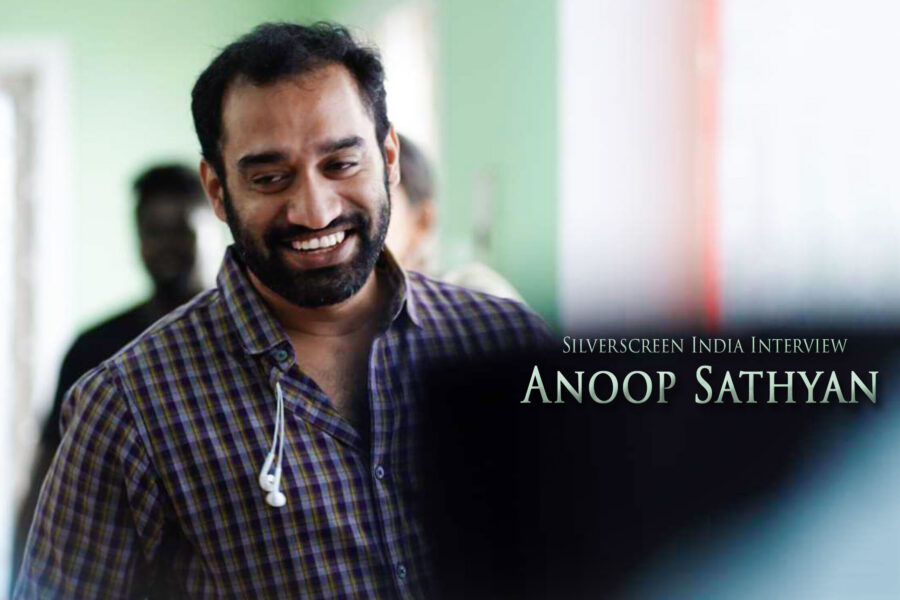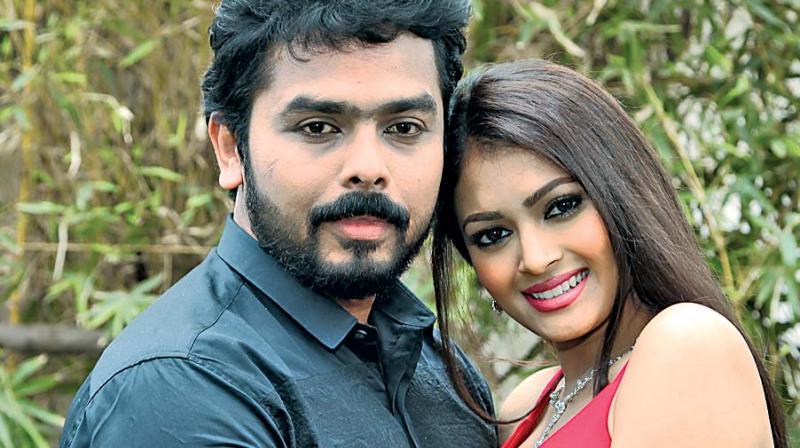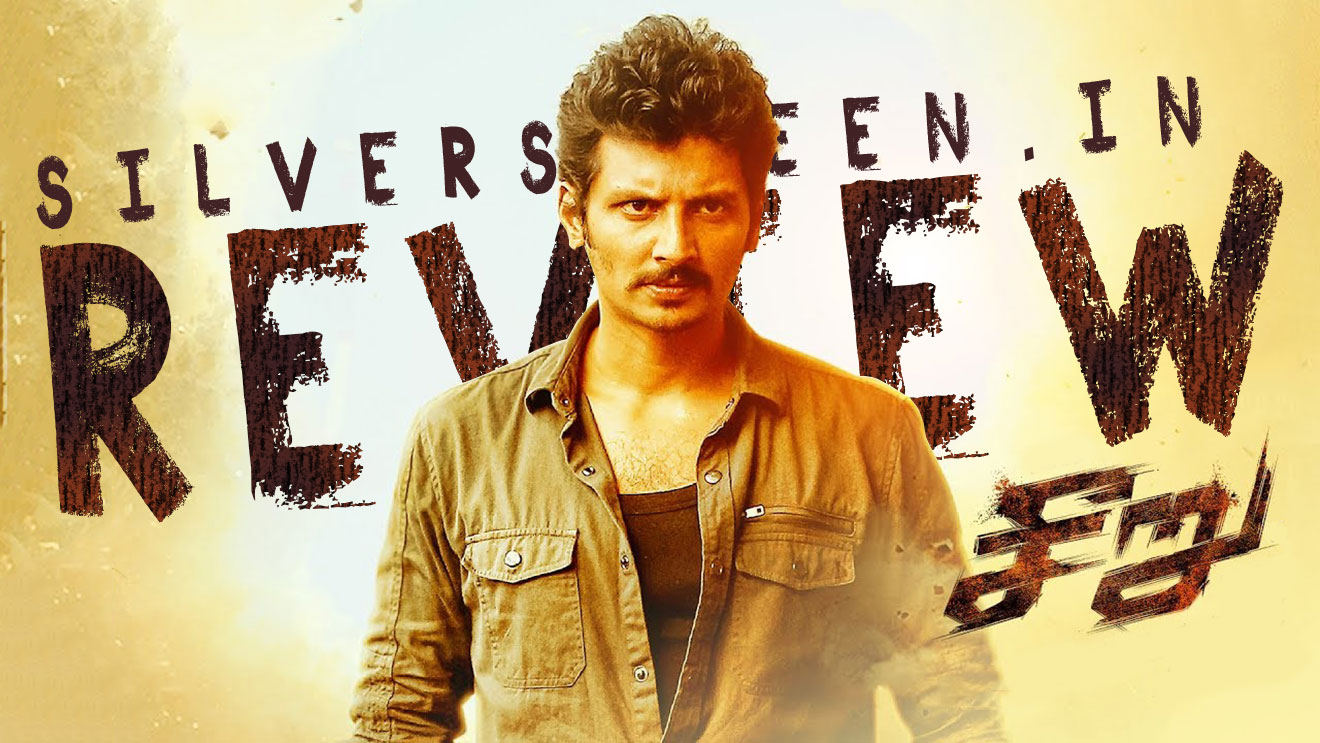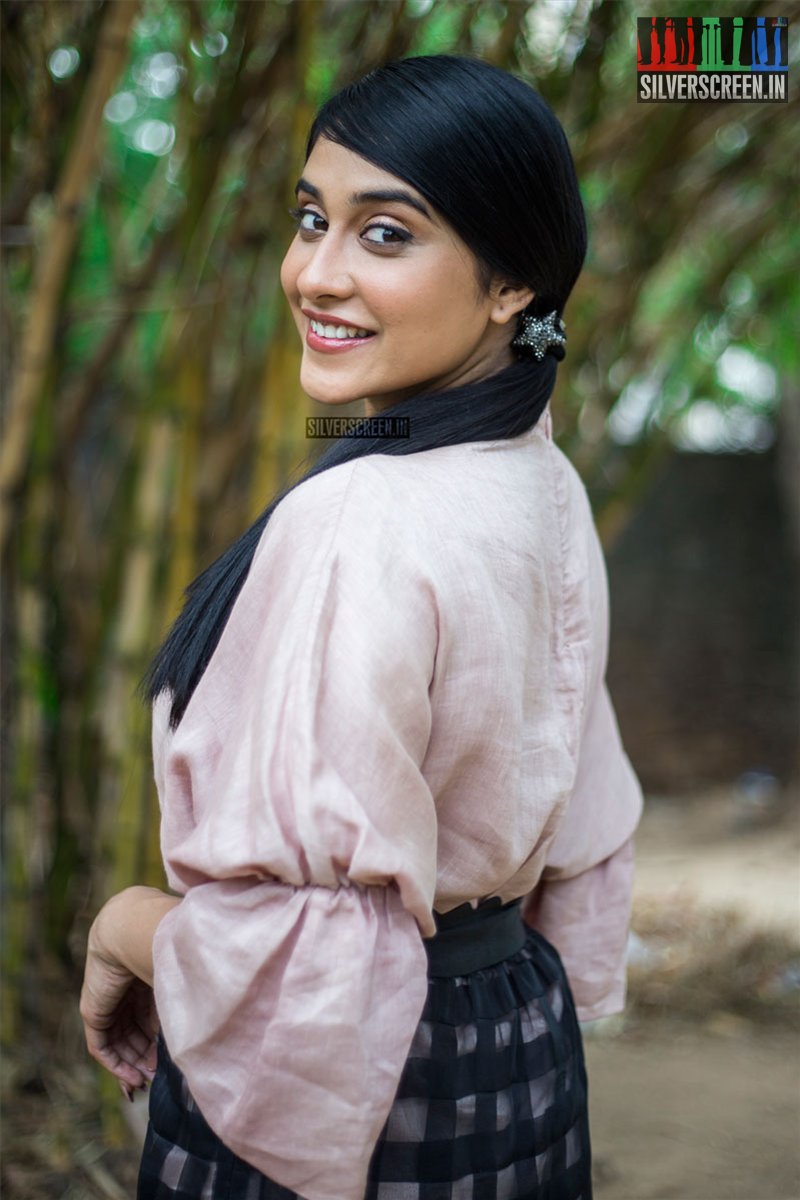Varane Aavashyamundu, an urban comedy, starring Shobhana, Suresh Gopi, Kalyani Priyadarshan and Dulquer Salmaan, has emerged as a blockbuster on Netflix and SunNxt where it arrived on April 20 after a successful theatrical run. The director of the film, Anoop Sathyan, talks to Silverscreen India about making a stellar debut, the lessons he learned from a brief tenure as a documentary filmmaker, and learning from his mistakes.
Days after Varane Aavashyamundu (Groom Wanted) released in theatres in Kerala to positive reviews, Anoop Sathyan, the debut director, took off to a reserve forest in Maharashtra, to follow up on Jamnya, a documentary he did four years ago about a tribal residential school in the middle of the forest.
“Once I started getting congratulatory calls from everywhere and I knew the film was a hit, I decided it was time to take a break,” says Anoop. “I always wanted to go back to the school to see what had happened to the children I’d filmed for the documentary. Some of them have been married off. Some of them dropped out to work..”
The 34-year-old director, son of veteran Malayalam filmmaker Sathyan Anthikkad, is now home, in Anthikkad village in Thrissur, spending the lockdown period in the company of his family. “I am making a collection of photos of my little nephews — like a document of their childhood. I am also trying to revive my reading habit. Currently, I am reading Paul Kalanithi’s When Breath Becomes Air. I wrote an article which will be published in Mathrubhumi Sunday supplement this weekend…”
Also Read: Varane Avishyamundu Review
Recently, he reactivated the landline connection at home. “Not just because I’m nostalgic about them. Phone networks are weak in Anthikkad. I am trying to develop a story idea I’d been toying with before making Varane Aavashyamund. I am calling up some close friends and narrating the plot and the scenes.”
A graduate in film and video communication from National Institute of Design, Ahmedabad, Anoop assisted director Lal Jose in five movies. The working habits of the senior filmmaker and veterans like his father have rubbed off on him. “I am a little old-school. I didn’t use spot-editing or multiple cameras. We didn’t go for many takes, and we tried to follow an economy in filmmaking.”
Varane Aavashyamundu revolves around a set of characters who live in an apartment complex in an affluent Chennai neighbourhood. Shobhana plays Neena, a French tutor and a single mother to Nikki (Kalyani Priyadarshan) who works in a bank. Things take a turn when Neena falls in love with a new neighbour, Major Unnikrishnan, an introverted ex-army officer, played by Suresh Gopi. Actor Urvasi, KPAC Lalitha and Dulquer Salmaan, who has also produced the film under his home banner Wayfarer Films, appear in pivotal supporting roles.
The plot thread was conceived during his NID days, as a romantic drama featuring a single mother and an ex-army man who grow close through social media. When another project he had been working on didn’t pan out, he tweaked the romantic drama, added another character — a daughter who doesn’t believe in love marriages—and developed the screenplay.
Nazriya Nazim was his first choice as Nikki. “She was the first actor I approached and narrated the script to. Later, she had to back out due to date issues. The toughest task was convincing Shobhana ma’am. Although she liked the script, she was unsure. I waited for over a year to get her nod. And I was ready to wait because if she didn’t agree to play the role, the film couldn’t take off.”
The film showcases Chennai as an idyllic city—warm and picturesque. Anoop picked Chennai because he wanted to place his lead characters, the single mother and her daughter, in a liberal atmosphere where they won’t be judged or policed.
“Chennai is a city close to my heart. It has a cultural identity; a soul. I lived in Chennai while working at Wipro, and my twin brother, Akhil, is settled there. Also, Shobhana lives in Chennai. She preferred to work in films that were set in the city.”
The costumes were done by Uttara Menon, a regular collaborator of Gautham Menon. Anoop chose Mukesh Muralidharan as the film’s director of photography because the latter was familiar with Chennai.
The apartment in Varane Aavashyamundu is a happy commune where everyone knows one another. It isn’t exactly a realistic scenario, he agrees. “I wanted life to look desirable, like how it is in sitcoms like Friends. It is designed on the lines of old apartments in Chennai where residents live as a community recreating the spirit of their native village.”
The sitcom-like narrative of the film has drawn both, bouquets and brickbats. “It isn’t easy to construct an engaging sitcom narrative,” Anoop says. “Although all the episodes of Friends feature the same people and the same space, you don’t feel tired of watching it. With every new episode, you grow closer to the characters, and start to “live” with them. My film has a similar setting. We worked hard on the production design part to make each flat look different, and on making the film atmospheric and creating the moments—emotional, humorous or romantic.”
Anoop has used in the film numerous hat-tips to vintage Malayalam classics and characters Malayalis across the world have a fondness for. He says, “Nadodikkattu is a very personal film. I have many memories associated with it. We had a cassette of the film at home. I know every scene, every dialogue in the film by-heart. I wanted to showcase the war monument in Besant Nagar in the film as a tribute to Vaisakha Sandhye. Such hat-tips and recalls brought the audience closer to the film.”
Anoop says writing isn’t his forte. He put things down a paper as a full-fledged screenplay only in the last stage, after he’d decided on the plot, characters, and the scenes. “Once, while cleaning my room, my father found a poem I’d written. He must have been so shaken that he asked me to not take up writing. (Laughs). I think I am good at narrating scenes than at writing.”
The hardest and the most crucial part of filmmaking isn’t writing a screenplay, but executing the ideas on the set, he says. “Filmmaking, to a large extent, is an MBA job where your managerial skills, communication prowess and decision-making abilities are put to test. One of my top priorities on the set was to make my team comfortable. I knew everyone on the set, including the light boys, by their name.”
His experience in documentary-making came handy while directing the actors on the set. “I wasn’t a fan of documentaries before joining NID. As part of the course, we had to make a documentary film. Now I know how powerful the medium is. Documentaries taught me how to capture people with their guards lowered; to identify candid moments and to make the subjects/actors comfortable with the presence of the camera.”
Anoop has a huge collection of behind-the-scene pictures and videos that recount the fun the team had on the set. When Shobhana walked into the set, he impulsively played the song from Thalapathy—“Yamuna Aaatrile”—on the speaker and shot the actress’ reaction. “It warmed up the set instantly. Shobhana ma’am was pleasantly surprised, and she blushed. Similarly, I wanted to record Suresh (Gopi) ettan’s first meeting with ma’am on the set. I followed him with a camera as he walked to her caravan. I might upload a behind-the-scenes album on social media during this lockdown period.”
Although the film is star-studded, a performance that has become an easy favourite among the audience is of Johny Antony, the director-turned-actor who plays Dr Bose, a psychiatrist and fitness instructor. Antony, who’s been working in the film industry since the 90s, moved to the other side of the camera only two years ago. Anoop came to know of Antony’s terrific comic-timing while working as an assistant director to Lal Jose in Thattumpurathachuthan where Antony played a local politician.
The now popular “Vilakku” scene in the film was Johny Antony’s idea, says Anoop. “Suresh ettan (Gopi) was initially a little unsure about doing a self-referential comic scene. “Really? Should we?” he asked. I told him that the dialogue had already been trolled so much, and it would diffuse only if he used in a film. After we shot the scene, he felt assured. Later, he sent me a voice-note saying how happy he was about the character, and that he had confidence in the film.
Similarly, the popular Suresh Gopi hook step in the Unnikrishna song was a last-minute idea. Sureshettan participated in it without any qualms. I think he enjoyed breaking out of his dignified image and making fun of himself on screen.”
Anoop took the plunge into the movies after meandering a little. He studied engineering and worked at Wipro for a few years before joining NID.
“Achan had made it a point to bring us up with minimal exposure to the film industry. We studied in a government school in Anthikkad. I don’t remember visiting many film sets in my formative years. Achan would repeat in interviews that none of us had any interest in films, and we took it for granted too. In fact, the first time I saw a proper film shoot was after I joined Lal Jose sir’s team, as an assistant director.”
Anoop always had his eyes set on commercial filmmaking “At NID, I was not into watching classics or abstract films which were the favourites of my classmates and teachers. I wanted to make uncomplicated films that smoothly communicate with the audience. I am a fan of the films of Sreenivasan, Rajkumar Hirani, Mani Ratnam and Akira Kurosawa.”
Cinema is naturally a frequent point of discussion at Anthikkad house. Akhil has served as an assistant to Sathyan Anthikkad in several films and is now working on his debut directorial with Fahadh Faasil in the lead. Anoop might assist his father on his next project, starring Mammootty, which has now been postponed due to the pandemic. The sons and the father share ideas, collaborate officially or unofficially and seek opinions from one another.
On the criticisms against his father’s films for their ‘unrealistically’ humane characters and cliche situations, and the comparisons drawn between his and the latter’s films, Anoop says, “Reality isn’t always dark, is it? I wouldn’t watch a noir thriller and complain about its darkness. My father makes a certain kind of films that drives him, where the focus is on the goodness in people.”
Recommended
He recounts an incident from a recent theatre visit in the Kottayam-Changanassery region. “A person came up and congratulated me on the film. And he added, “Next time, make a film like Anjaam Paathira!” (Laughs) I don’t want to plan my career that way. Shifting genre isn’t my priority. I want to go on a flow. One of the story ideas I have been toying with is a romantic drama, like Mouna Ragam. Another one is a cartoonish film. I want to do at least one film in a year, without a lot of gap between the films. That will help me refine my style,” he says.
Anoop is also aware of the mistakes he made in the making of the film. “I misjudged the length of the film, and eventually, I had to delete some of my favourite scenes. The film’s pace, in many parts, is inconsistent. Next time, I will be more prepared.”
Watch the trailer of Varane Avishyamundu here:



